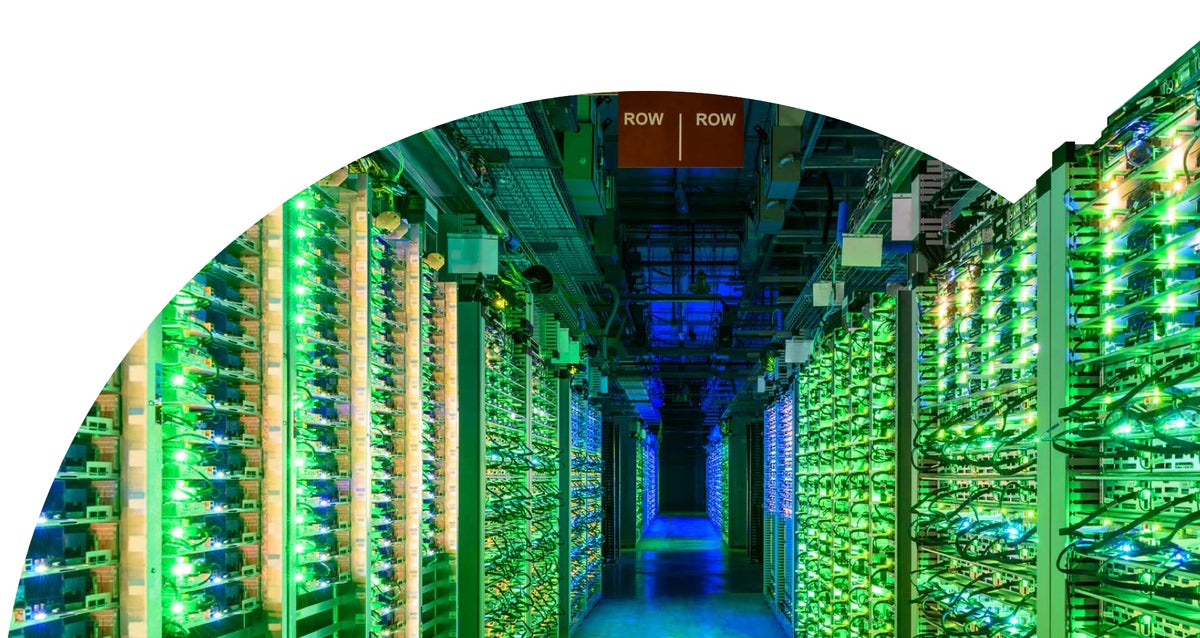- How to disable ACR on your TV (and stop companies from spying on you)
- I expected this cheap multitool to be a waste of money, but it's my new a toolbox essential
- Have The Last Word Against Ransomware with Immutable Backup
- Multi-channel Secure Communication
- Apple's bold idea for no-code apps built with Siri - hype or hope?
Gartner: What to do to make data centers more sustainable

Just a few weeks ago Gartner analysts said that sustainability and issues around it would transcend all of the strategic technology trends for 2023.
This week at its IT Infrastructure, Operations & Cloud Strategies Conference Gartner described how corporate data centers might make sustainability a practical reality.
“IT leaders must avoid wasting value through the premature replacement of IT infrastructure,” said Philip Dawson, vice president and analyst at Gartner, at the conference. “They can do that by using real-time health analytics to maximize the useful life of data-center assets.”
“On-premises data centers and cloud providers are extending infrastructure lifecycles from three to five years and from five to seven years to help maximize OPEX cycles and reduce CAPEX investments tied to refresh,” Dawson stated.
Above all, the most-effective way that sustainability can reduce costs is through greater energy efficiency and optimized power consumption. It is paramount that infrastructure and operations (I&O) leaders identify where and how data-center infrastructure can be optimized to consume less power, without hindering necessary business operations, Dawson stated.
Organizations need a sustainable-technology framework that increases the energy and material efficiency of IT services, and it must enable enterprise sustainability through traceability, analytics, renewable energy, and AI. The framework should also call for the deployment of IT solutions that help organizations achieve their own sustainability goals, distinguished vice president and analyst at Gartner Frances Karamouzis said earlier at the research firm’s IT Symposium/Xpo 2022.
“Targeting areas such as data-center power consumption is low-hanging fruit because it’s easy to measure,” Karamouzis said. “What enterprises need to look at is what to deploy as they get more and more data. Are they looking at buying more storage the same old way or are they looking at optimizing that system by looking at things like DNA storage and looking at the level of redundancy they need and implementing technology with a sustainable mindset.”
Environmental sustainability on CEOs’ radar, with 9% of them putting it among their top three business priorities, Gartner stated. Nearly 70% of them who Garnter surveyed plan to invest in new sustainable products and in make existing products more sustainable, the analysts stated.
Some things that Dawson said data-center customers could do to create a sustainable and eco-friendly data center include:
- Business should minimize greenhouse-gas (GHG) emissions from data centers by investing in suitable GHG emissions-offsetting programs rather than depending on supply-chain checks, or established token programs. They should also participate in a circular economy – one that reuses, shares, or recycles as much equipment as possible. Gartner said 74% of supply-chain leaders expect circular-economy activities to improve profitability between now and 2025.
- I&O leaders should consider using water-usage effectiveness (WUE) to track sources of water used to cool data centers and move away from drinking water and toward grey water—seawater, recycled water, or rainwater-collection systems. Additionally, immersion-cooling systems could deliver on sustainability and support better compute capability to strategic locations than is possible with conventional air-cooled racks.
- Create a baseline footprint of I&O by aggregating and tracking data such as server/storage utilization, power-usage effectiveness of their on-prem or cloud-based data centers, and the number of end-user devices per employee.
- Establish specific and measurable IT sustainability goals and measure progress. The goals can be long term, such as targets for emissions reduction or zero waste based on the organization’s unique data.
- Optimize sustainability processes and partnerships by defining a framework of accountability and formalizing policies across people, process, technologies, and business.
Copyright © 2022 IDG Communications, Inc.

